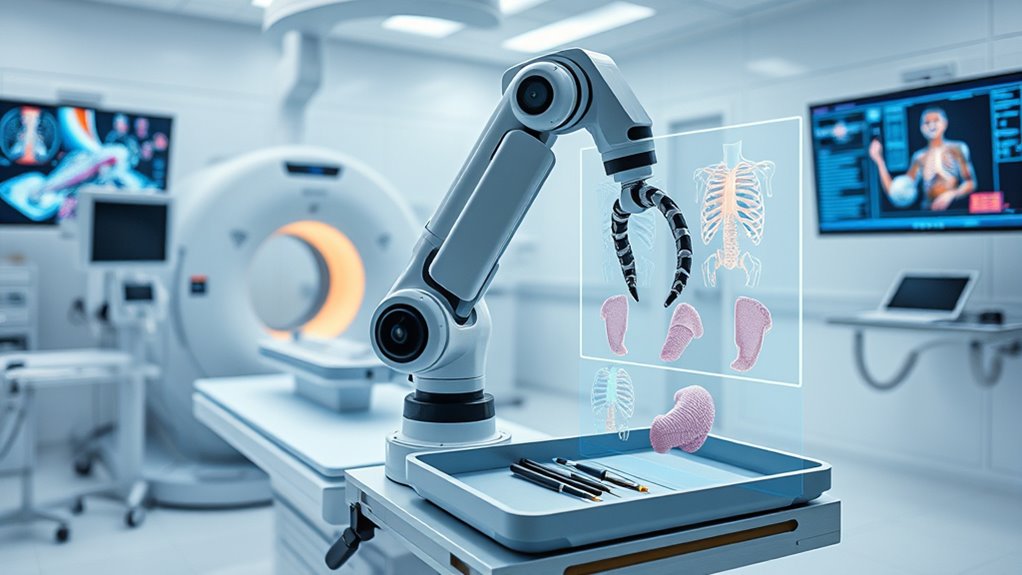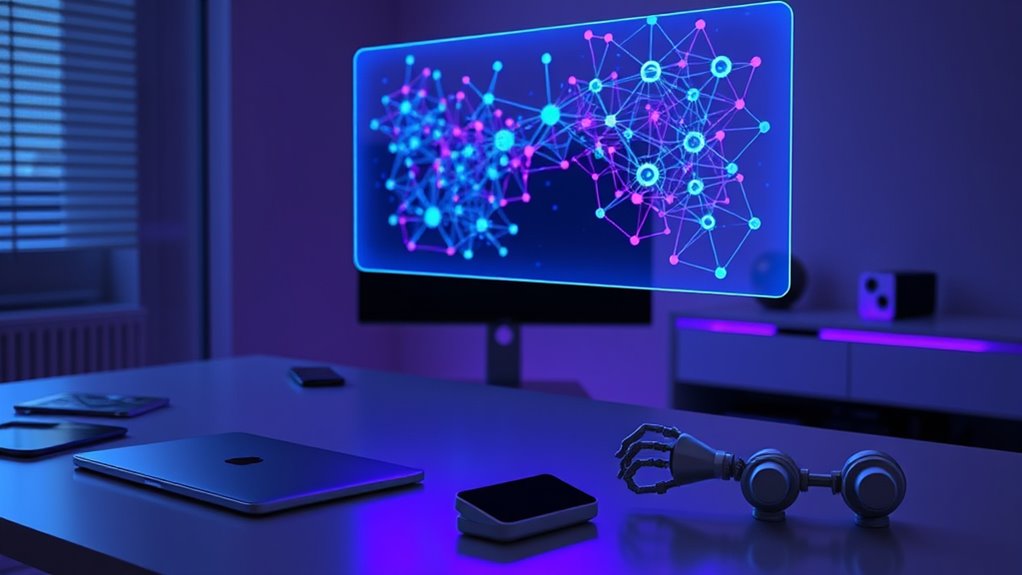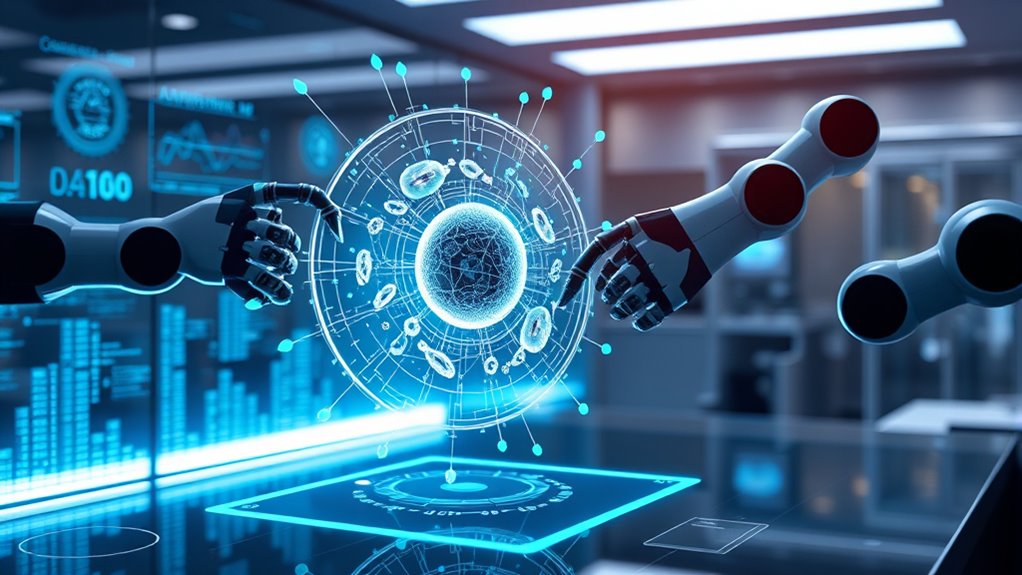Innovation is transforming healthcare through Artificial Intelligence, or AI. This technology is changing how doctors diagnose and treat patients. AI can look at X-rays and MRIs to spot problems quickly and accurately. It’s also used in special microscopes that check blood samples for dangerous bacteria. This helps catch diseases early. AI even assists in surgeries, guiding robots to be super precise, which means patients heal faster.
AI is revolutionizing healthcare by enhancing diagnostics with X-rays and MRIs, detecting bacteria, and guiding precise robotic surgeries for faster patient recovery.
There’re also AI tools like symptom checkers that figure out what’s wrong based on how someone feels and suggest what to do next. Plus, AI can predict health risks by studying patient info, helping doctors act before problems get worse. AI’s ability to recognize patterns from large datasets enhances its effectiveness in identifying potential health issues early on, aligning with the goal of achieving better population health through the quadruple aim. AI also excels at forecasting disease progression by analyzing extensive historical health data, enhancing proactive care management disease progression forecasting.
Beyond diagnosis, AI is making patient care better. Virtual health assistants, like chatbots, are there 24/7 to answer questions and keep track of patients. AI creates custom care plans for each person, so treatments work better. It also gives doctors helpful info to make smarter choices. Patients get more involved in their health with AI tools that send reminders and make things easy to understand. For those with ongoing conditions, AI helps monitor them from home, keeping things under control. Additionally, AI’s role in medical imaging allows it to analyze images with expert-level accuracy, often surpassing human capabilities in detecting critical conditions.
AI’s impact doesn’t stop there. It’s speeding up how new medicines are made. By looking at huge amounts of data, AI finds possible drugs much faster. It can guess how well a drug will work, cutting down on long tests. This saves time and money. AI also helps make drugs that match a person’s unique traits, making treatments more effective.
On the business side, AI is making hospitals run smoother. It handles scheduling appointments so there’s less waiting. It speeds up insurance claims and writes medical notes using voice tech. This lets staff focus more on patients. AI even figures out the best way to use resources in clinics.
Looking ahead, AI will play a big role in areas like immunomics and synthetic biology. It’ll help create new treatments, model complex body systems, and predict how people’s immune systems react. AI can also spot harmful germs fast, helping stop outbreaks before they spread. Clearly, AI is reshaping healthcare in amazing ways.









